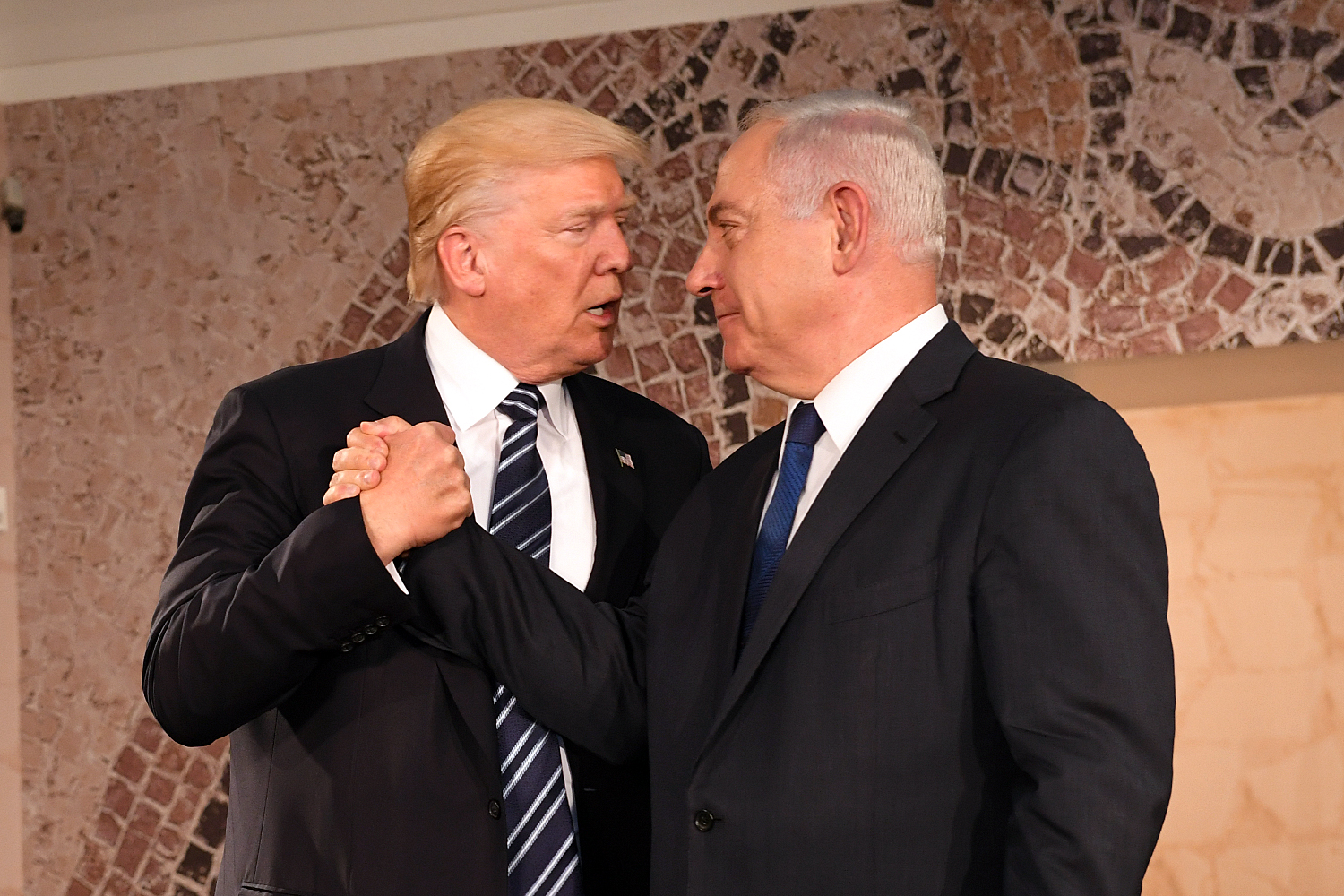by Ben Armbruster
Something remarkable happened last night regarding the Iran nuclear agreement. Despite Donald Trump’s years-long uninformed noise about how terrible the deal supposedly is, the White House inadvertently justified its existence.
In what appeared to be an effort to confirm Israeli Prime Minister Benjamin “Bibi” Netanyahu’s stunt yesterday to convince Trump to kill the deal, the White House issued a statement about the ongoing nature of Iran’s nuclear weapons program.
Then it immediately retracted that claim.
The reason, of course, is that Iran halted its nuclear weapons program in 2003, a fact well known and publicly reported by the U.S. intelligence community and the International Atomic Energy Agency (IAEA).
Many wrote off the White House correction as a simple—or even perhaps dangerous—typo. But a more likely explanation is that White House staffers exposed to years of false and alarmist right-wing noise about Iran, topped off by Netanyahu’s propaganda speech yesterday, probably believed that Iran has an active nuclear weapons program.
And that’s exactly the kind of confusion Netanyahu was seeking to sow.
His presentation yesterday—with thousands of files, dozens of CDs, and nefarious documents displayed via Power Point—was reminiscent of Colin Powell’s 2003 UN speech, or George W. Bush’s “yellowcake” claims, that made the case for war in Iraq. To the untrained eye (for instance, Donald Trump’s), Bibi certainly made it seem like Iran currently has a nuclear weapons program.
Indeed, if Iran already has some kind of secret nuclear weapons program, it seems quite reasonable to ask what’s the point of an agreement that seeks to stop it?
But as many others have already pointed out, not only did Netanyahu fail to offer any evidence that Iran is violating the Joint Comprehensive Plan of Action (JCPOA), all he did yesterday was note that Iran knows how to build a nuclear weapon. That fact is unremarkable given the information readily available on the Internet.
And that’s exactly the reason why the United States, Europe, Russia, and China put extreme economic pressure on Iran to come to the negotiating table and agree to a regime that assures the world that Iran won’t use that knowledge, or its infrastructure, to build a nuclear weapon.
In other words, all Netanyahu and the White House did yesterday was underscore how vital the Iran deal is. Iran knows how to build a nuclear weapon, worked on it in the past, and lied about it. So, going forward, it seems like a good idea to enact measures to prevent that from happening. And everyone—the IAEA, Russia, China, the EU, the U.S. intelligence community, Israeli security officials, and even some in Trump’s own inner circle—agree that the JCPOA is working.
Those who want to kill the JCPOA rarely address the obvious question: if the Iran deal is so bad, how do they intend to prevent Iran from building a nuclear weapon?
Netanyahu, Trump, and their enablers in Washington think tanks and media outlets do not have any answers to this question. They talk of making the deal better, but again, without offering any viable path to achieve it.
Remember that Netanyahu was a strong proponent of the Iraq war. He even guaranteed that taking Saddam out would “have enormous positive reverberations on the region.” He also reportedly pushed for war with Iran on at least three occasions, only to be overruled by Israeli military leaders.
Given all the times that those who want to rip up the JCPOA have called for war with Iran, it’s logical to conclude that deal opponents ultimately want regime change and/or war. But cavalierly calling for war and regime change in Middle Eastern countries isn’t as popular as it used to be (though it can get you a nice White House job under Donald Trump). So, JCPOA opponents have to get creative. Their plan, it seems, is to create confusion around the JCPOA, get Trump to kill it, and let the chips fall where they may. The result is not going to be pretty.
Ben Armbruster is the communications director for Win Without War and previously served as National Security Editor at ThinkProgress.






there is absolutely no evidence that iran had a nuclear weapon profram prior to 2003 and the author cannot find any iaea document to support it minus the feeble iaea concession to US as a way of going forward the distinction escapes the author and he adopts the us intelligence disinformation on iran.
Great picture! One to the other “Can I ask you for a dance”? No let’s find a nice tune for the regime change first!